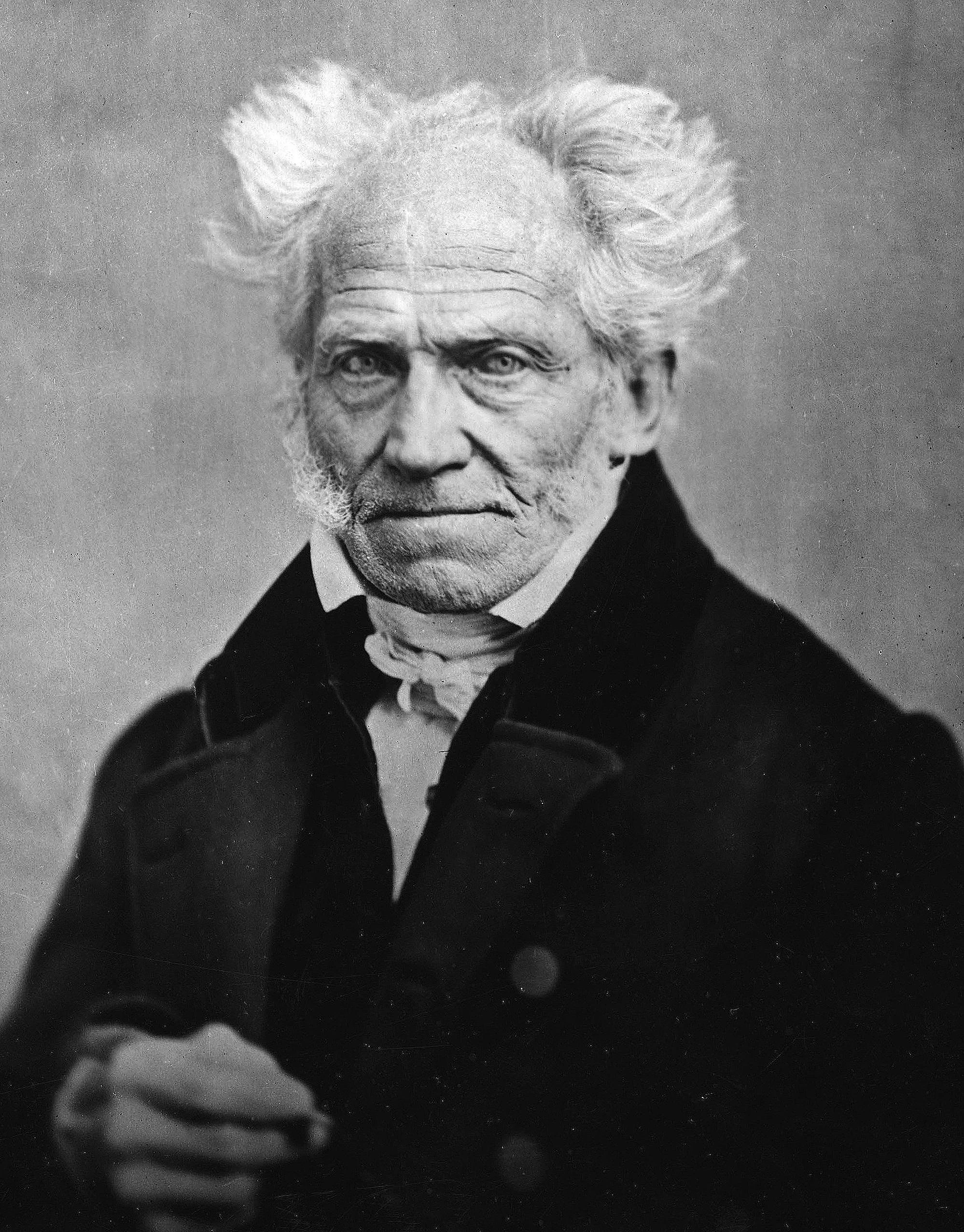Club Contributors
Savage Heathen RC is more of a concept (i.e. philosophy) than an organization, and our motto is simple: We’re here to suffer & grind!
And as you can see, our contributors consist of founders and practitioners…most of which are dead (or are lucky to be alive). We also shun traditional titles/rolls such as president, vp, director, member, etc. They are self-important devices, and they bore us immensely.
Now go be like our boy Sisyphus and push that boulder, up that hill, with defiance and courage.
Founders & Practitioners
-

Arthur Schopenhauer
Status: Founder / Deceased
Arthur Schopenhauer was a 19th-century German philosopher known for his emphasis on the pervasive nature of suffering in the human condition. He regarded suffering as an inherent aspect of existence, and this theme is central to his philosophical work.
Schopenhauer posited that suffering is an inescapable part of life, and that it arises from the fundamental nature of human desires and the inevitable clash between them and the external world. He believed that our desires are insatiable and that the pursuit of these desires leads to suffering. This perspective is encapsulated in his concept of the "will to live," a relentless force that drives individuals to seek satisfaction in a world filled with obstacles and limitations.
In Schopenhauer's view, art and compassion provide solace in the face of suffering. He considered the aesthetic experience, particularly the contemplation of beauty through art, as a means to momentarily transcend the suffering inherent in human existence. Additionally, Schopenhauer emphasized the importance of compassion and altruism in alleviating the suffering of others, as a way to counteract the selfish tendencies of the human will.
Schopenhauer's profound insights into suffering continue to resonate with modern audiences, as his work prompts us to confront the reality of pain and adversity in our lives, while offering avenues for finding meaning and consolation in the face of such challenges.
-

Friedrich Nietzsche
Status: Founder / Deceased
Friedrich Nietzsche was a 19th-century German philosopher who, in many ways, reacted against the prevailing philosophical notions of his time, including those of Arthur Schopenhauer. While Schopenhauer emphasized the pervasive nature of suffering in the human condition, Nietzsche took a different stance on the subject.
Nietzsche acknowledged the existence of suffering but saw it not as an inherent aspect of existence, but rather as a result of cultural, moral, and psychological factors. He posited that much of human suffering is caused by the suppression of natural instincts and the internalization of societal values that lead to inner turmoil and conflict.
For Nietzsche, embracing life's inherent struggles and confronting the nihilistic tendencies that arise from suffering was crucial for personal growth and the transcendence of one's limitations. He proposed the concept of "amor fati," the love of fate, encouraging individuals to accept and even embrace the challenges and suffering they encounter as essential components of the human experience.
Furthermore, Nietzsche placed a strong emphasis on the individual's will to power, advocating for the assertion of one's own unique values and the continual self-overcoming of limitations. In his view, the pursuit of personal growth and the development of a "superior" human being required confronting suffering head-on and using it as a catalyst for individual evolution.
While Schopenhauer focused on the alleviation of suffering through compassion and the contemplation of art, Nietzsche's approach centered on affirming and harnessing the transformative potential of suffering to foster personal development and the realization of individual greatness.
Ultimately, Nietzsche's perspective on suffering presents a contrasting viewpoint to that of Schopenhauer, offering a unique and thought-provoking lens through which to understand and grapple with the human experience of pain and adversity.
-

Sisyphus
Status: Practitioner / Deceased
The Myth of Sisyphus tells the story of a deceitful and cunning king who was condemned by the gods to an eternity of pushing a boulder up a hill, only to have it roll back down every time he neared the top. This relentless and futile task represents the essence of Sisyphus' suffering - an existence without hope or purpose.
The boulder symbolizes the burden and futility of human existence, as we struggle with tasks that seem never-ending and ultimately fruitless. The eternal repetition of Sisyphus' labor mirrors the repetitive and often monotonous nature of our daily lives, where we feel trapped in a cycle of mundane routines and endless obligations.
Yet, despite the absurdity of his situation, Sisyphus finds meaning and purpose in his struggle. Embracing the endless task as his own, he defies the gods and finds freedom in his ability to choose his response to his fate. In this defiance, Sisyphus embodies the human spirit, resilient and unyielding in the face of adversity.
The myth of Sisyphus serves as a poignant reminder that even in the most seemingly hopeless and futile circumstances, there is an opportunity to find meaning and purpose. It challenges us to embrace the struggles and hardships in our lives with courage and defiance, knowing that it is through our choices and attitudes that we can find freedom and meaning in the face of suffering.
-

Steve Prefontaine
Status: Practitioner / Deceased
Steve Prefontaine, often called “Pre”, was a legendary American middle and long-distance runner known for his incredible guts, determination, and ability to endure pain. Prefontaine's fearless approach to running and his extraordinary displays of grit have made him an enduring icon in the world of track and field.
Prefontaine's journey to greatness was marked by unwavering determination. He pushed himself to the absolute limit in every race, refusing to settle for anything less than his best. His fearless and aggressive running style, characterized by his relentless front-running tactics, refusing to let his competitors dictate the pace combined with exceptional endurance, often left his competitors in awe. Prefontaine's determination was evident in his training methods, which were characterized by grueling workouts and an unyielding commitment to improvement.
However, Prefontaine's determination extended beyond the track. He was an outspoken advocate for the rights of amateur athletes and was known for challenging the norms of amateurism in sports. He fearlessly stood up against the Amateur Athletic Union and fought for the right of athletes to benefit from their own success.
Tragically, Prefontaine's life was cut short at the age of 24 in a car accident. Despite his untimely death, his legacy of determination lives on. His influence continues to inspire runners and athletes of all kinds to push their limits and strive for greatness.
Steve Prefontaine's determination serves as a reminder that with relentless drive and unwavering focus, one can achieve extraordinary feats and leave an indelible mark on the world.
-

Bodhi "Bodhisattva"
Status: Practitioner / Deceased?
In the 1991 movie Point Break, the character of Bodhi, also known as “Bodhisattva”, embodies the ideology of nihilism through his unique perspective and actions. Nihilism is the belief that life is without objective meaning, purpose, or intrinsic value. Bodhi's character exemplifies this belief through his rejection of conventional societal norms and his pursuit of freedom and adrenaline-fueled experiences.
Bodhi, a charismatic and adventurous surfer, leads a group of bank-robbing adrenaline junkies known as the Ex-Presidents. His rejection of mainstream societal values and his embrace of extreme experiences reflect the nihilistic perspective of seeking meaning in the absence of traditional structures. Bodhi's pursuit of the ultimate "high" through surfing, skydiving, and criminal activities reflects a disregard for the consequences of his actions, a hallmark of nihilistic thought.
Furthermore, Bodhi's nickname, "Bodhisattva," carries spiritual connotations. In Buddhism, a Bodhisattva is an enlightened being who compassionately forgoes entering nirvana in order to help others achieve enlightenment. Bodhi's adoption of this name reflects his self-image as a guide for others seeking liberation from societal constraints. His leadership of the Ex-Presidents can be seen as an attempt to lead others to a state of freedom and transcendence, albeit through unconventional means.
Bodhi's interactions with the protagonist, FBI agent Johnny Utah, provide insights into his nihilistic worldview. He challenges Utah's deeply ingrained beliefs about law and order, advocating for a lifestyle unconstrained by societal norms. His actions and philosophies force Utah to confront the limitations of his own worldview, embodying the clash between nihilism and the established order.
In conclusion, Bodhi "Bodhisattva" in Point Break represents a compelling portrayal of nihilism through his rejection of societal norms, pursuit of transcendental experiences, and influence on the protagonist's worldview. His character serves as a thought-provoking exploration of the tension between personal freedom and societal constraints.
-

Steve Forsing
Status: Practitioner / Unknown
In the 2015 movie Sicario, the character of Steve Forsing… (to be cont.)
